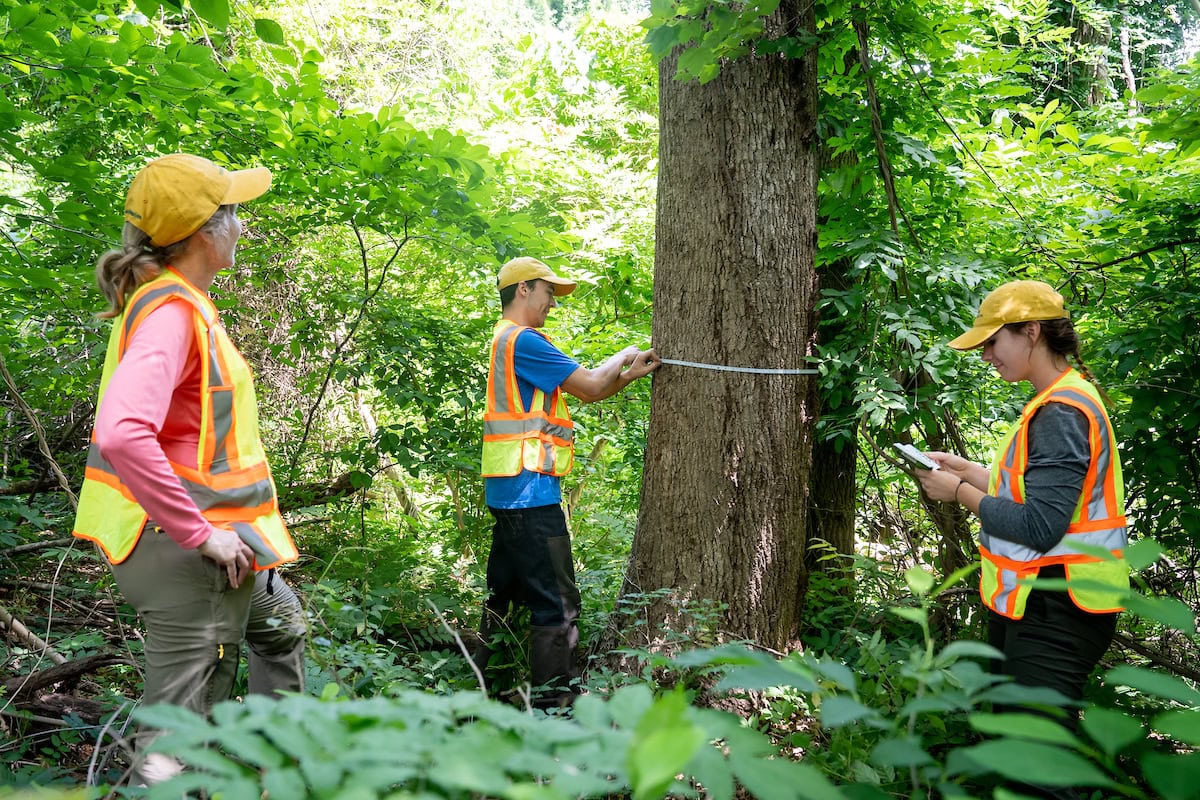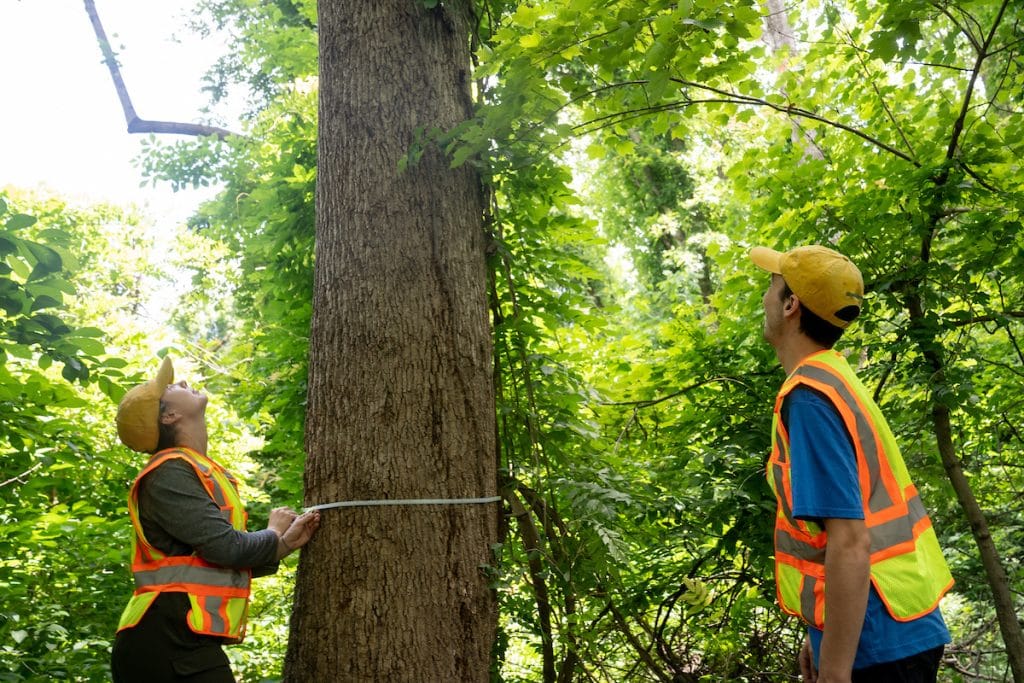Randolph students continue ongoing project with 500-Year Forest Foundation
This story is part of an ongoing series featuring the work of faculty and students participating in Randolph’s Summer Research Program.

Professor Karin Warren, Gabe Quintero ’23, and Brooklyn Ford ’22 measure a tree on back campus as part of their Summer Research Project.
Contrary to popular belief, most forests in Virginia are privately owned.
“When we think of forests, we think they are mostly public lands,” said Karin Warren, Randolph’s Herzog Family Professor of Environmental Studies. “That’s not true in Virginia. Over 80 percent of forests in Virginia are held in private hands.”
This summer, Warren is working alongside Gabe Quintero ’23 and Brooklyn Ford ’22 to look more closely at some of those forests as part of Randolph’s Summer Research Program (SRP).
Specifically, they are focusing on old growth forest assessment and invasive species management, building on work done during SRP in 2019.
Old growth forests are those that have developed over a long period of time without significant disturbance and often include unique ecological features and large, old trees. They also provide vital ecosystem services such as regulating water flows and influencing weather patterns.
“There is very little true old growth in Virginia or even in the United States,” Warren said. “The importance of this kind of work is identifying forests that have the potential to evolve into old growth forests over time.”

Brooklyn Ford ’22 and Gabe Quintero ’23 working earlier this month.
The ongoing project is supported by funding from the 500-Year Forest Foundation and a grant from the Oak Hill Fund. The 500-Year Forest Foundation conserves mature forests and the biologically diverse species they nurture in partnership with private landowners to ensure their forests are protected in the future.
In 2019, Warren and another pair of students, Keyu Jin ’20 and Priscilla Ranjitkar ’20, developed a baseline assessment protocol and conducted inventories at three 500-Year Forest Foundation forests.
This summer, Quintero and Ford will take the protocols they developed—which include visual observations of sample plots of land within a forest—and find a way to align them with recommendations from the Foundation, with an eye toward efficiency and affordability.
“They wanted it to be slightly more intensive, so basically our job is to meld the two protocols,” said Quintero, who has interned with the 500-Year Forest Foundation over the past two semesters. “For the original protocol, the number of plots per forest was about one plot per 50 acres. The really intensive and expensive option is one plot per five acres. We’re trying to find a happy medium between them.”
After several practice runs in wooded areas on campus, this week the trio will conduct assessments in a large Foundation Forest in Halifax County. In addition to the visual observations of each plot, the assessments also include interviews with forest owners about how the land has been used.
“I’m very interested in being out in the field, and this is a good chance to get some real-world work experience,” said Ford, who is also looking for educational outreach opportunities with the 500-Year Forest Foundation as part of the project.
She and Quintero are putting together a manual about best practices for dealing with invasive species, another piece that will benefit from the insight of landowners.
They have also been sitting in on community meetings and attended an all-day retreat held by the 500 Year Forest Foundation to get a firsthand look at the strategic planning and fundraising conversations that go on in a nonprofit.
It’s a path both Quintero and Ford could find themselves on after graduation. Ford is considering joining AmeriCorps, while Quintero hopes to enter the inventory conservation field.
“The best way to look at a future in a nonprofit is to get as much experience as a student as you can,” Warren said. “The 500-Year Forest Foundation has been really supportive of having student interns. They like the idea of mentoring them and having a hand in their careers moving forward.”
Tags: 500-year Forest Foundation, environmental science, environmental studies, Karin Warren, Oak Hill Fund, student faculty research, summer research, summer research 2021
